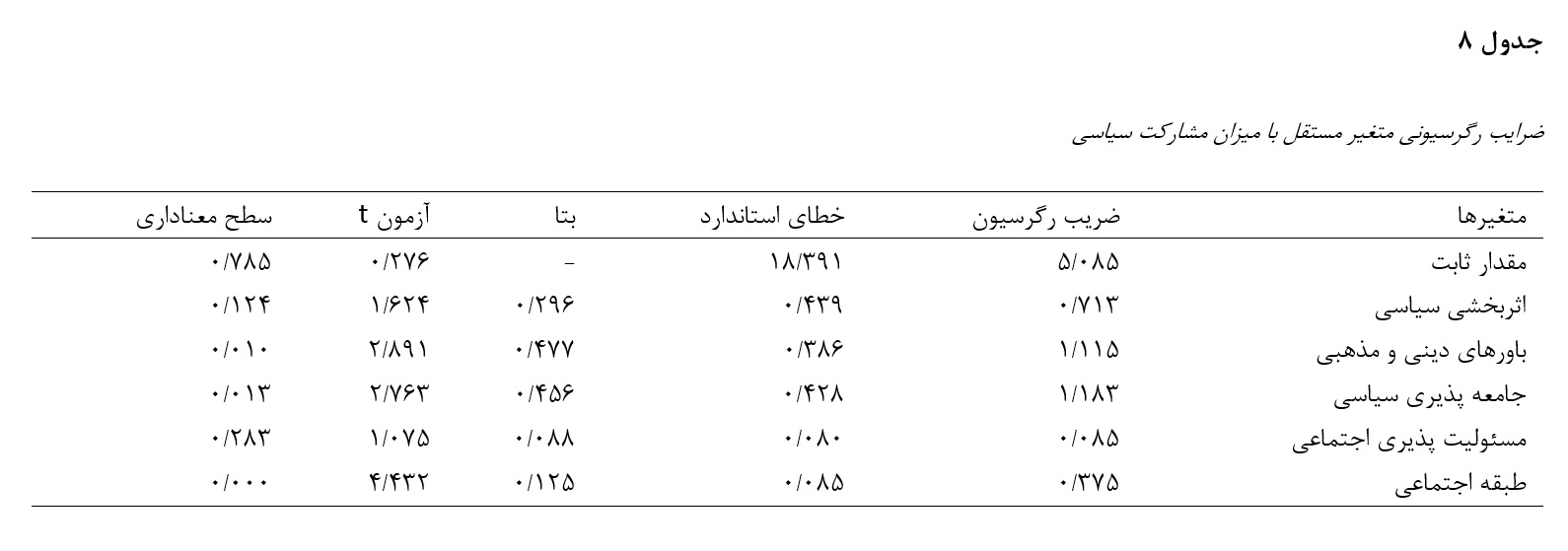Women's Political Participation in Mazandaran Province and the Socio-Cultural Factors Affecting It
Keywords:
Political participation, social capital, political socialization, cultural capital, womenAbstract
The aim of this study is to examine and investigate the socio-cultural factors influencing women's political participation in Mazandaran. The theoretical framework is based on the perspectives of Robert Putnam, Habermas, Lerner, Milbrath, and Lipset. The research method is a survey, and the unit of analysis is women over 18 years of age. The sampling method is multi-stage cluster sampling, and the sample size, according to Cochran's formula, is 384 individuals. The data collection tool is a researcher-made questionnaire. Data analysis methods include Pearson correlation coefficient, path analysis, and multiple regression analysis using SPSS software. Face validity was used to assess validity, and the Cronbach's alpha coefficient for the dependent variable of political participation was 0.885, indicating the reliability of the variables. The findings showed that the average political participation in both the objective and subjective dimensions of political participation was moderate. About 8.9% reported very low levels of political participation. Approximately 17.7% indicated low participation, about 33.8% reported moderate participation, about 21.4% reported high participation, and about 14.6% reported very high political participation. There is a positive and direct relationship between the variables of social capital, political socialization, the extent of media use, cultural capital, religiosity, and the level of social security with the level of political participation in both objective and subjective dimensions. Regression analysis shows that 41.2% of the variance in women's political participation is related to the independent variables. The highest explanation of variance and changes in women's political participation belong to the variables of political socialization and social capital, respectively. In conclusion, strengthening and enhancing social and cultural capital, the feeling of security, socialization, political socialization, and religious beliefs can play a significant role in shaping women's attitudes towards political participation in both the subjective and objective dimensions of political participation, encouraging women residing in the cities of Mazandaran province to increase their political participation in various social arenas.
Downloads







